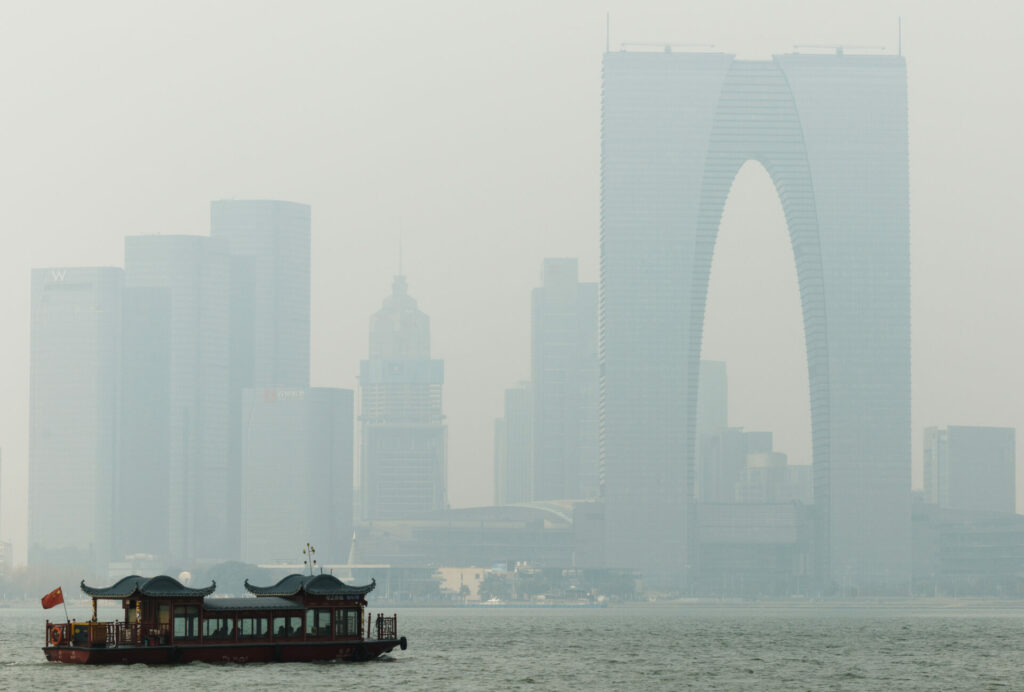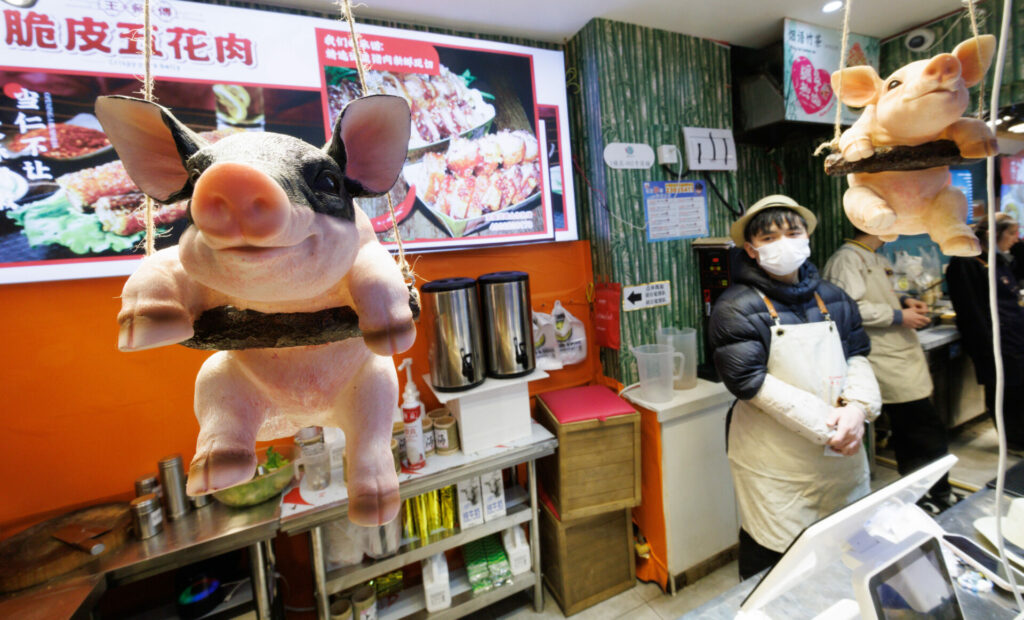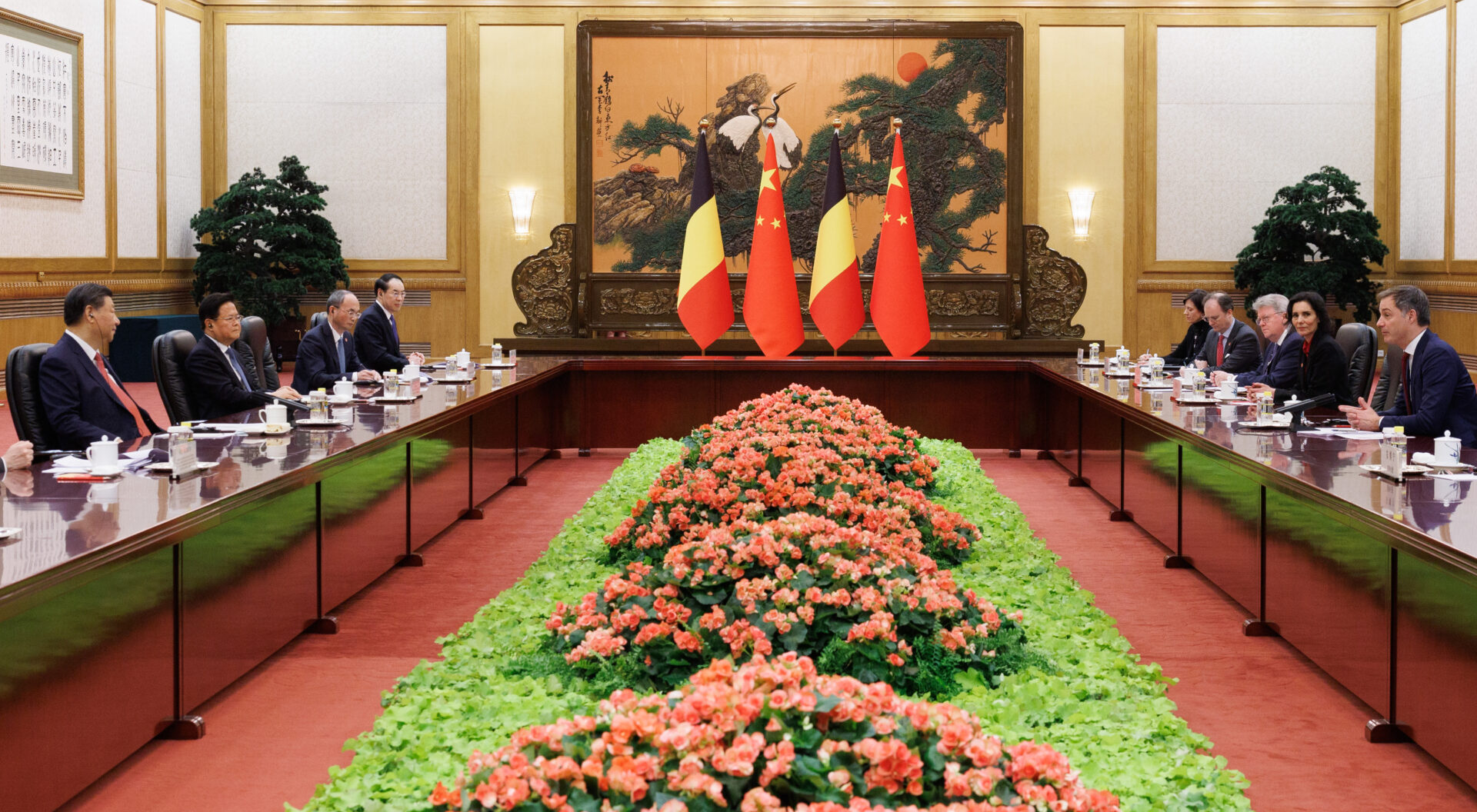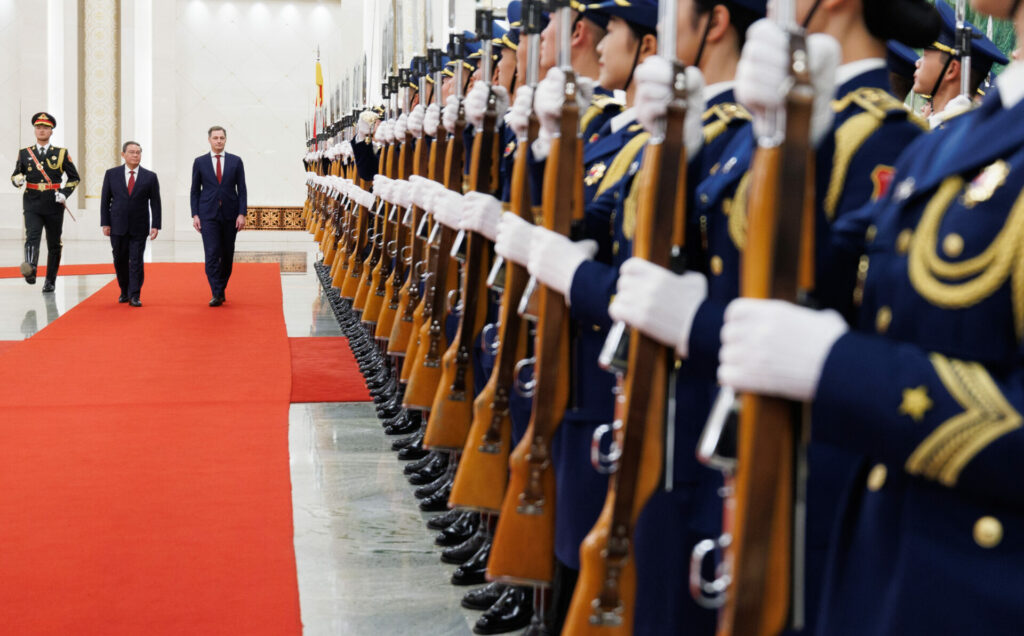Two weeks into its Presidency of the Council of the EU, Belgium's Prime Minister Alexander De Croo and Foreign Minister Hadja Lahbib travelled to China this week in a bid to improve relations with the Asian superpower amid growing geopolitical tensions.
In Belgium's first high-level visit since 2019, discussions aimed to boost economic opportunities through renewed trade agreements. But the trip comes in the context of heightened awareness about Chinese meddling with EU affairs, most notably for Belgium the cash-for-influence scandal which has implicated members of the far-right Vlaams Belang party.
"We celebrated 50 years of diplomatic relations between our two countries in 2021. We can say that we have a mature relationship and that we can discuss thorny issues," Lahbib stated. She added that talks would not steer away from sensitive topics: "We will address everything without taboos, including interference. It's unacceptable just months before an important election."
Aside from political interference, critical issues to be discussed included lifting the 2018 embargo on Belgian pork exports and restoring the air link between Brussels and Shanghai.
Partner, competitor, rival
The landmark meeting gave Belgium the chance to try its diplomatic strength on a global superpower that De Croo acknowledged is "simultaneously a partner, competitor, and rival". Western relationships with China have in recent years moved more towards the latter, as geopolitical tensions have simmered, undermining economic ties.
Escalating tension over areas like Taiwan and hostilities in the South China Sea have seen China viewed with growing suspicion – which has not been unfounded as covert interference operations by China in EU affairs have been exposed. For Belgium specifically, this issue has been in the spotlight as far-right politicians have been shown to engage actively with Chinese intelligence agents in a bid to promote pro-China policies.
The Creyelman revelations caused a major stir in Belgium, with Justice Minister Paul Van Tigchelt asserting that the national security systems are dangerously old and ill-equipped in the face of sophisticated sabotage and subterfuge. At the time De Croo called out the clear attempt to undermine national democracy. On the visit, he stressed the need for "total respect for each other's political systems."

Foreign Minister Lahbib visited Jinji Lake in Suzhou, China, Wednesday 10 January 2024. Credit: Belga / Benoit Doppagne
More broadly, Belgium has aligned itself with the EU "derisking" strategy, which recognises China as a competitor in some areas but also a partner in others. But with the US pushing for a tougher stance towards China, the Sino-EU investment climate has chilled considerably, with tighter scrutiny of foreign investment by European nations seeking to protect their strategic autonomy.
Belgian pork
The effort to set Sino-Belgian relations on a more constructive footing was on some fronts successful, with China lifting its embargo on Belgian pork, which was imposed after the outbreak of African swine fever in the south of Belgium in 2018. China makes up half of global pork consumption, meaning the lifted ban is a significant boost for the meat sector in Belgium.
"In the pork world, one cannot overlook China,” noted Joris Coenen, manager of the Belgian Meat Office (BMO) at the Flemish Agro-Marketing Office (VLAM).

A restaurant visited by Foreign Minister Lahbib in Shanghai, Tuesday 09 January 2024. Credit: Belga / Benoit Doppagne
It took Belgium two years to eradicate the disease. "We have become an example, one of the few countries to have eradicated swine fever," assured Michael Gore, director of the Belgian Meat Federation (FEBEV) which represents slaughterhouses and cutting workshops.
The sector accounts for approximately 7,000 jobs, excluding 4,000 farms mainly in Flanders where the animals are reared. Seven per cent of its exports are outside the EU.
More talking, more trading
Belgium has also established a new embassy in Beijing, a zero-emission facility made with materials reclaimed from the original structure. De Croo and Lahbib inaugurated the building on Thursday, emphasising the symbolic importance of the embassy. De Croo urged more dialogue and said that "Eight years (since the last such visit) is too long."
To underscore Belgium's economic interests, De Croo travelled with around 20 business leaders from the likes of Bekaert, Volvo Cars, Solvay, and Pairi Daiza. He noted that "Belgium is one of the gateways for many Chinese products into Europe."

Chinese President Xi Jinping, Belgian Foreign minister Hadja Lahbib and Prime Minister Alexander De Croo pictured during a meeting at the President's residence in Beijing, China, Friday 12 January 2024. Credit: Belga / Benoit Doppagne
Another diplomatic victory from the trip was China sending favourable signals over the possibility of lifting short-stay visas for Belgian tourists – a privilege that only five EU countries have: France, the Netherlands, Germany, Italy, and Spain.
Yet the issue of trade has been contested hotly by EU leaders, with the EU's trade deficit with China doubling in two years. In 2022 it reached €390 billion – the cost to Belgium's economy estimated at €27 billion. Economically, Belgium ranks seventh amongst European importers and exporters to and from China.
De Croo called for equal terms of trade for European companies in China. "I have no problem with Chinese companies coming to us, but I believe Belgian companies coming to China should be able to do so under the same conditions."
Engaged openly with President Xi Jinping today.
China and the EU remain important partners in tackling many of the global challenges. Belgium promotes its interests and values in the world. Thank you to our Chinese hosts for the respectful and constructive dialogue. pic.twitter.com/bIGPrW63iG — Alexander De Croo 🇧🇪🇪🇺 (@alexanderdecroo) January 12, 2024
Relations between Beijing and Brussels have strained since the EU indicated it wanted to reduce its trade dependence on China, particularly in the technology domain. In September 2023, against a backdrop of Chinese electric vehicle competition in the European market and under pressure from France, European Commission President Ursula von der Leyen announced a probe into Chinese subsidies for electric cars.
China criticised the move as "naked protectionism" that would harm Sino-European trade relations. Welcoming the Belgian premier to China, President Xi Jinping affirmed that "China wants to work with the European Union to promote steady progress in China-EU relations."
The visit concluded positively and was followed by a banquet accompanied by music from well-known Belgian artists like Arno, Angèle, Toots Thielemans, and Clouseau.

